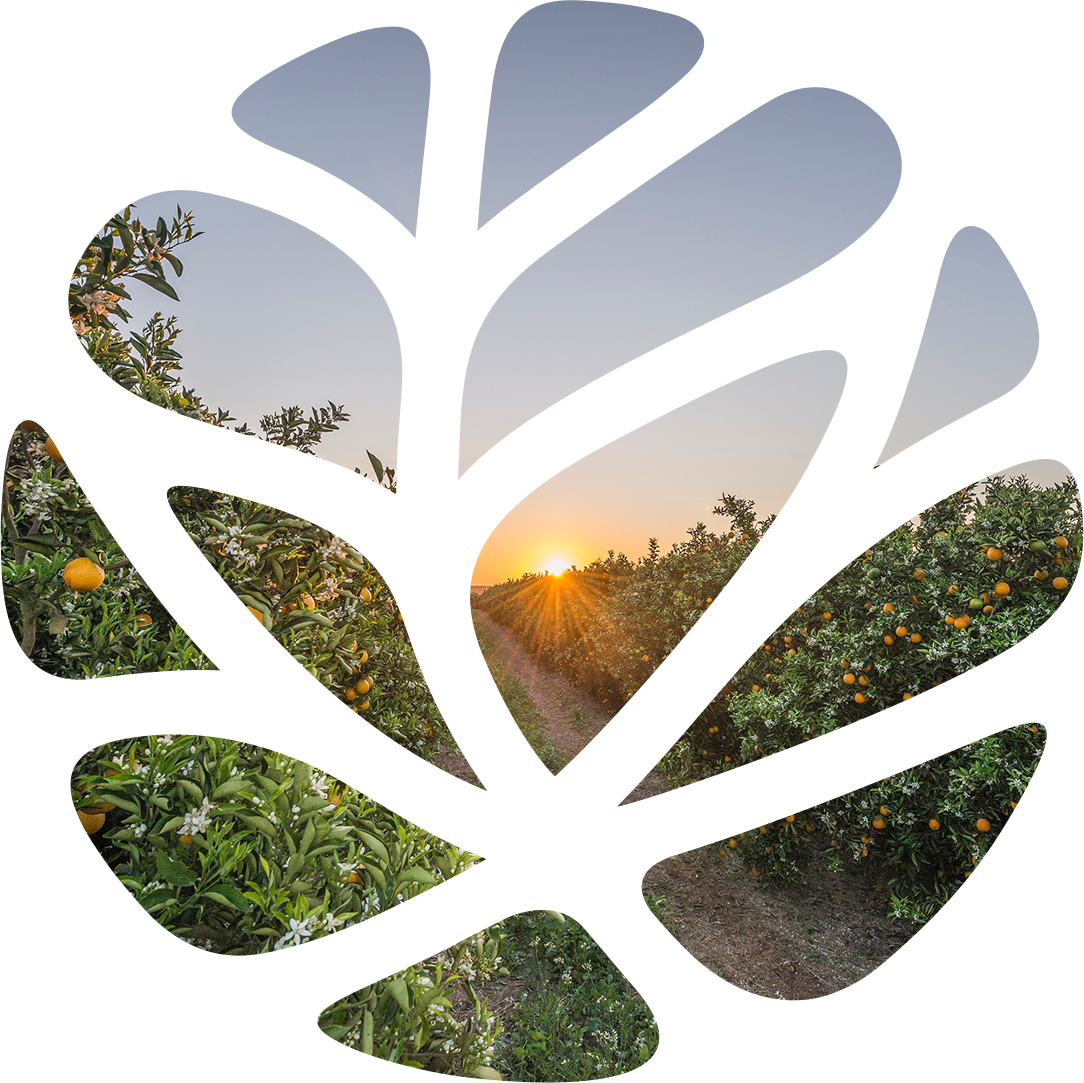
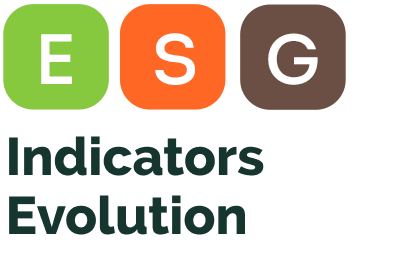
Aware that sustainability is an ongoing journey, we are committed to taking another step towards building a company that generates a growing positive impact, creating long-term value for everyone.
Our ESG Commitments guide the main themes that are relevant to the company and its stakeholders. Driving projects in line with our purpose of 'Nourish life, living legacies'
We invite you to learn more about our ESG Commitments and follow our journey of progress!
2030 TARGET
Reduce CO2 emissions by 28% eq¹ in scopes 1 and 2
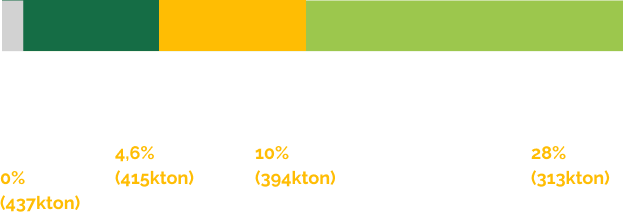
*Status 22/23 – Validation of SBTi (Science Based Targets initiative) targets.
In the 2022/2023 crop, we expanded our renewable energy capacity in Brazil and Europe, as well as acquiring traceability through I-REC. This initiative, along with other projects, contributed to a 10% reduction in scope 1 and 2 CO2 emissions compared to the 2019 baseline. In addition, we identified the technical and financial feasibility of originating carbon credits from our operations.
The climate emergency is one of the great challenges of our time. Reducing greenhouse gas emissions is the first step towards contributing to climate resilience.
Citrosuco acts transparently on this agenda, publishing GHG (Greenhouse Gas) emissions inventories accredited by third parties on platforms such as the GHG Protocol, having achieved the Gold Seal of performance in 2022.
Faced with the commitment to reduce emissions by 28% in scopes 1 and 2 by 2030, we have approved our decarbonization pipeline for 2030. We are already intensifying the use of renewable energy beyond the current 61% and prioritizing low-carbon inputs in the production process, as well as other practices.
With our orange orchards, we contribute directly to the removal of carbon from the atmosphere, capturing about 400 thousands Ton CO₂ per year.
As a reflection of our climate maturity, we achieved an A- rating in the CDP (Carbon Disclosure Project) for the year 2022. We were the second food and beverage company in Brazil to validate decarbonization targets in the SBTi, and as leaders in the value chain, we challenged ourselves to reduce 28% of scope 1 and 2 emissions and 14% of scope 3 emissions.
The 2019 and 2022 emissions inventories have been audited by Bureau Veritas.
.jpg)
2030 TARGET
Structured biodiversity conservation projects for 100% of hectares for environmental protection
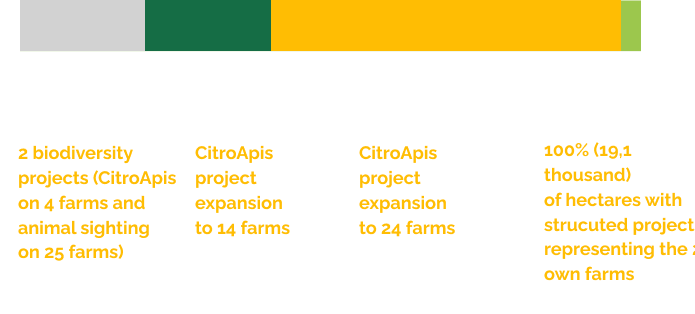

During the 2022/2023 harvest, we carried out the CitroApis program on our 24 own farms, reaching a production volume of more than 50 tons of honey, we also implemented the forest enrichment prototype on a 33-hectare area at Fazenda Entre Rios.

The active promotion of our green areas enables sustainable coexistence with our agricultural production system. We manage more than 19,100 hectares for the conservation of fauna and flora, spread across the Cerrado and Atlantic Forest biomes.
We have successfully expanded our CitroApis project and are proud to announce that by 2023 we will have reached the milestone of 24 own farms with CitroApis working in an integrated way between honey production and our orange orchards. In addition, we have successfully completed the faunal and floral diagnosis, which has given us a deep understanding of the biodiversity already present in our operations. As part of our ongoing efforts towards sustainability, we also implemented a forest enrichment prototype on a 33-hectare area on one of our farms.
Since 2018, we have taken a proactive approach to implementing projects aimed at wildlife sightings and the development of the bee chain, promoting their harmonious coexistence in our orchards, with the aim of creating a more sustainable ecosystem. In addition, we are committed to preserving the areas surrounding springs, rivers, and lakes, recognizing the crucial role they play in maintaining biodiversity and water resources.
With a view to 2030, we are committed to intensifying the development of structured projects covering 100% of the hectares earmarked for environmental protection, thus reinforcing our positive impact.
.jpg)
2030 TARGET
Increase water use efficiency in industrial operation by 20% (m³/ton).

Target close to the status of the 2022/2023 harvest due to the crop failure caused by climatic conditions (imbalance in the rainfall regime).
Rationalize water collection in 100% of critical watersheds, contributing to increased water availability to stakeholders.

*Baseline 2020: Annual licensed catch of 40 million m³ on 8 selected farms in critical watershed regions.
In the 2022-2023 harvest, we achieved water consumption of 1.85m³/ton in our operations, which represents significant water efficiency compared to the starting point, as a result of optimizing our processes.
During the 2022/2023 harvest, we started building the three mega water reservoirs that will make it possible to optimize water volumes in future harvests.
Water is a fundamental resource for our planet, essential for nourishing life. Through our business, we play a crucial role in promoting positive impacts, and water plays a key role in this context.
More than 80% of Citrosuco's water consumption is concentrated on irrigating farms, due to the climatic conditions in the regions where we operate.
Our efficient drip systems deliver water and nutrients directly to the roots of the plants. With the aim of ensuring an even more conscious use of water resources in this process. We have approved the implementation of four mega-reservoirs in water-critical areas.
The 2022/2023 status does not yet reflect the rationalization management process in agricultural operations, since the new assets will come into operation in the next harvest, making monitoring possible.
At our four plants, technological investments allow for the treatment and reuse of water, strengthening the recirculation of more than 900,000 m³ of water resources in recent harvests.
As a result of this water efficiency process, in the 2022/2023 harvest, we have already reduced the use of water in production processes directly linked to core business from 2.3m³/ton to 1.85m³/ton.
For 2030, we will ensure even more rational use of water resources in agricultural operations, through the operation of reservoirs and management actions around river basins.
In our factories, we will increase the efficiency of water use through monitoring and technology, ensuring less consumption of resources.
.jpg)
2030 TARGET
Reduction of the greatest social vulnerability in 100% of the prioritized territories where we operate.

In the 22/23 harvest, we prioritized the 10 territories where we will operate in vulnerabilities. In the last 3 years, Citrosuco has invested more than R$10 million in education, citizenship, income generation and protection of the rights of children and adolescents programs."
In the 22/23 harvest, the MDI (Municipal Development Index) was developed, a tool related to municipal development indicators, consisting of four axes: education, work and income, health, and environment. Impact measurement will be carried out from the 23/24 harvest, after the implementation of programs aimed at reducing the greatest vulnerabilities identified through the IDM in the prioritized territories.

Citrosuco, in partnership with the Votorantim Institute, has joined forces to create the Municipal Development Index (IDM), a valuable tool that consolidates socio-environmental indicators for all Brazilian municipalities based on public data.
Composed of four thematic axes - Education, Work, Income, Health, and Environment - the IDM makes it possible to identify the strengths and weaknesses of different municipalities, offering a comprehensive view for public managers and other interested parties. In addition, it enables comparisons between municipalities, encouraging informed decision-making to drive long-term social transformation.
In order to reduce the main vulnerabilities, 10 strategic territories were prioritized for Citrosuco. In these municipalities, the main pains were identified, and which social programs/technologies could mitigate them, through Citrosuco social investment.
Our commitment is to build a legacy together with the communities and generate a positive impact where Citrosuco operates its business. We impact the quality of education in municipal public schools through the Program for the Valorization of Education (PVE).
We impacted Matão youth through the Citizenship Program, which, among other activities, stimulated the creation of the Youth Parliament, made official and unanimously approved by the City Council. In 2023, the third class of Young Councillors was formed (22 members and alternates). This program was awarded by the UN in the SDG Action Awards program, which recognizes actions that present solutions for the SDGs
Another noteworthy program was Empreende, which aimed to train entrepreneurs in the Itapetininga and Rechan territories and impact economic dynamism through a training day, with Instituto Meio as a technical partner, and the offer of seed capital for projects with economic growth potential.
For 2030, we will work to reduce the greatest social vulnerability identified in 100% of the prioritized territories. We will develop integrated interventions through social and impact investment, in synergy with public policies, local vocations, and actors in the ecosystem of each territory.
.jpg)
2030 TARGET
Ensure the evolution of the professional career of people with disabilities, ensuring learning and growth.
Achieve 30% women and black people in leadership positions* by 2030

By 2022/2023, we will have reached 26% of women and black people in leadership positions, representing progress compared to the baseline
People are the essence of our purpose.
In 2023, we made significant progress towards a more diverse leadership, achieving a 26% representation of women and blacks in supervisory positions and above, in various teams across our business.
Our dedication to promoting diversity dates back to 2015, with the launch of the For All Program, which focuses efforts on issues and initiatives related to the importance of Diversity, Equity, and Inclusion.
For the year 2030, we are committed to further expanding opportunities and access to leadership positions, aiming to achieve at least 30% representation.
This program will be promoted by the leadership through awareness and engagement campaigns, in addition to the constant review of processes and practices.
.jpg)
.jpg)
2030 TARGET
100% sustainable fruit supply (own fruit and third parties).


In 2022/2023, we reached 73% of sustainable fruit supply, representing an evolution compared to the baseline.

Citrosuco already operates 100% of its 25 own farms certified according to the SAI Platform gold level, acting in accordance with the most robust international agricultural practices.
As a result of cooperation with the value chain of producers, in the 2022/2023 harvest, we will reach 73% certified sustainable fruit.
Our journey in the sustainable chain dates back to 2016, when we created the Trilhar Program, which aims to strengthen relationships with our fruit suppliers and disseminate best sustainability practices.
An important step along this path was the commitment made in 2020 to the Sustainable Juice Covenant (SJC), a global pact that aims to ensure 100% of the value chain is sustainable by 2030. In 2022, we were elected to join the SJC Executive Committee, working with other global companies.
In line with our commitment, we are yearly audited by PWC Netherlands with the aim of standardizing our value chain according to the parameters established by the SJC. Through these initiatives, we have been able to demonstrate the traceability of our raw materials and transparency in our processes.
We will continue to evolve in the face of our 2030 commitment through promotion, coordination, and partnerships to enable sustainability certifications for partner producers.
.jpg)